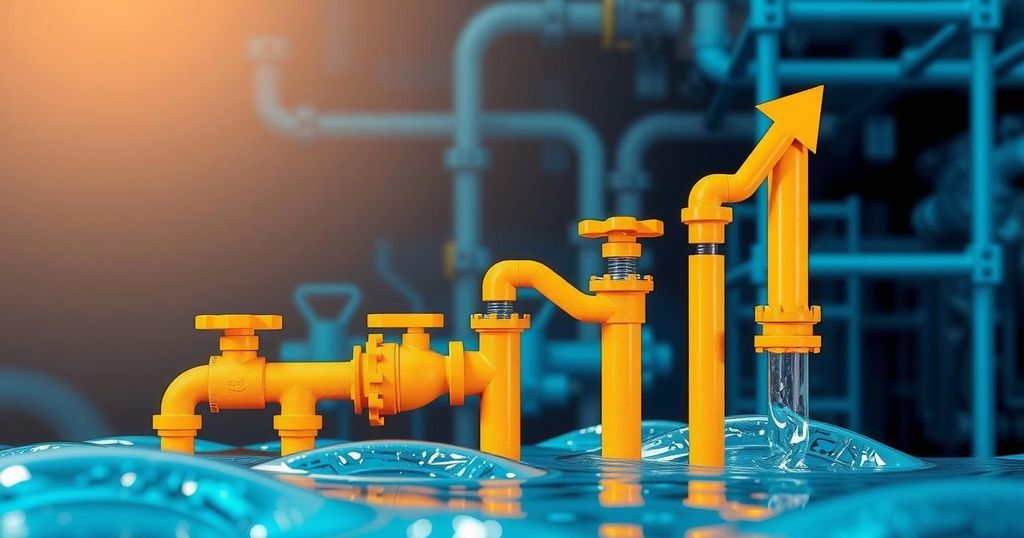AySA, the state-owned water provider in Argentina, has seen a bond rally after President Javier Milei lifted price controls, resulting in a 56% return on bonds. Milei’s administration is pushing for privatization, which may include a public listing or auction. Although improved profitability has been reported, the company must navigate challenges in the privatization process and gain necessary approvals for success.
Aguas y Saneamientos Argentinos (AySA), a state-owned water provider, is experiencing a bond rally following reforms by President Javier Milei, who has lifted price controls on public utilities. Since taking office in December 2023, AySA’s dollar-denominated bonds due in 2026 have risen over 20 cents and now trade near par, generating returns of about 56%, significantly above the average 11% return for other emerging-market corporates.
Milei’s libertarian approach aims to deregulate the economy and reduce the government’s size, potentially leading to the privatization of state-run firms. Since the removal of price controls, AySA has been able to raise fees, resulting in fully funded operations for the first time since 2007, as the average water bill in Buenos Aires increased by 344%
Fernando Pueyrredon, a corporate credit strategist, noted, “The transparency of the company, and its cost efficiency has changed quite dramatically since Milei came to office.” The rise in investor confidence, driven by Milei’s reforms, has resulted in a rebound across Argentine bonds, both sovereign and corporate.
AySA is actively restructuring, having already consulted with the World Bank’s International Finance Corporation on the sale process. The utility has cut its headcount by 20% and improved profitability, reporting third-quarter earnings of US$59 million in 2024, reversing a loss of US$42 million a year prior.
A significant increase in household water bills has allowed AySA to cover its operating costs entirely through consumer fees, rising to 100% from 52% the previous year, according to the Instituto Interdisciplinario de Economía Politica.
Moving forward, AySA is considering either a public listing or an auction for privatization, although no decision has been finalized. The government, which holds a 90% stake, must obtain approval for any privatization plan, and it is aiming to divest activities better suited for the private sector.
Despite enthusiasm, past privatization efforts by Milei’s administration have stalled. Important examples include the delayed privatization of Aerolíneas Argentinas and a blocked attempt to privatize the largest bank in the country. Future bond performance for AySA will hinge on the success of these privatization efforts, underscoring investor concerns regarding political continuity. “For it to be a longstanding company, it needs to be privatised.”
The potential privatization of AySA is a significant issue as it navigates its restructuring amidst a reformist political landscape led by President Milei. While AySA has shown promising recovery in its financials and bond performance, the success of future privatization efforts will play a crucial role in determining the company’s long-term stability and efficiency in the water utility sector.
Original Source: batimes.com.ar






